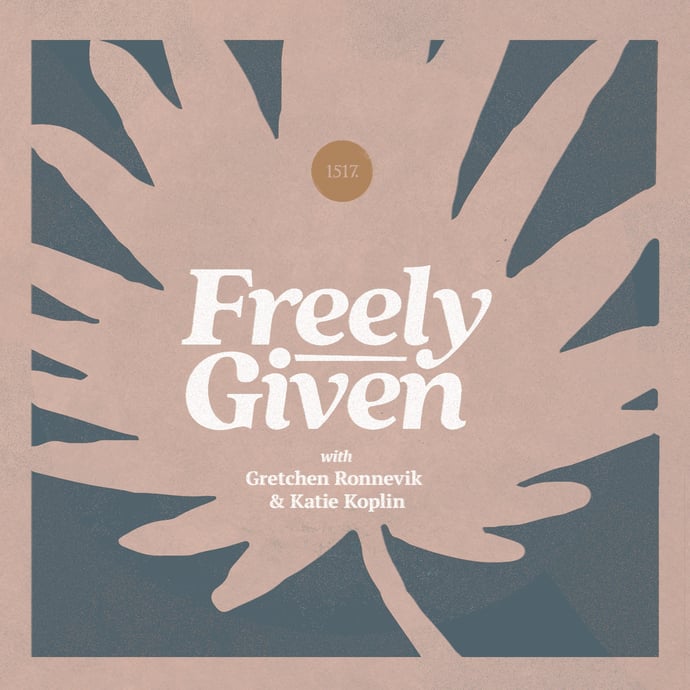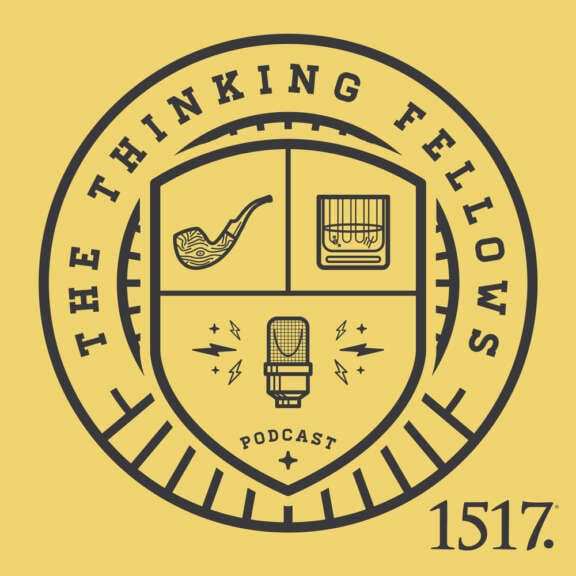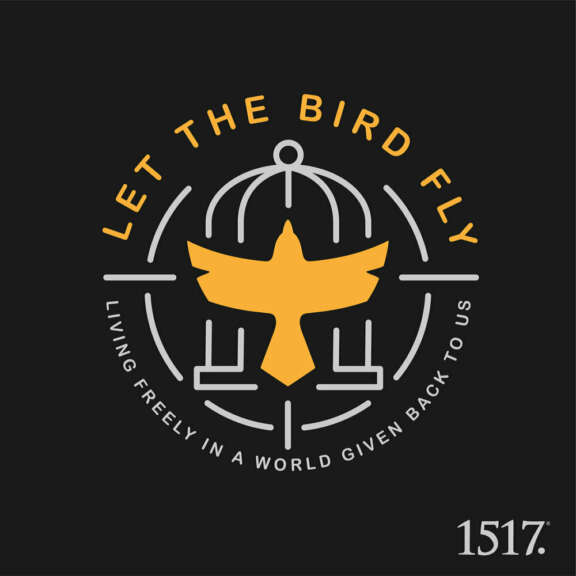In this episode we are answering a question sent into us, about when it's ok to say "no" to being pulled into serving in a ministry. We talk about how we don't always "feel like" being involved, and also manipulation, and the "savior complex" we slip into so easily.
Podcasts
Each 1517 Podcast is dedicated to delivering Christ-centered content through weekly, monthly, and seasonal audio platforms. Listen online or on your favorite podcasting app.
Author
- All Authors
- Aaron Zimmerman
- Adam Francisco
- Amy Mantravadi
- Blake Flattley
- Bob Hiller
- Bradley Gray
- Brian W. Thomas
- Bror Erickson
- Bruce Hillman
- Caleb Keith
- Chad Bird
- Chris Rosebrough
- Christopher Gillespie
- Cindy Koch
- Craig Donofrio
- Dan van Voorhis
- Daniel Deen
- Daniel Emery Price
- Darrin Sheek
- David Andersen
- David Rufner
- David Zahl
- Debi Winrich
- Delwyn Campbell
- Donavon Riley
- Doug Klembara
- Edward Killian
- Elyse Fitzpatrick
- Erick Sorensen
- Flame
- Grant Klembara
- Gretchen Ronnevik
- Haroldo Camacho
- Jacob Smith
- Jared C. Wilson
- Jeff Mallinson
- Jeffrey Pulse
- Jessica Thompson
- Jim Nestingen
- Joel Fitzpatrick
- Joel Hess
- John Andrew Schreiner
- John Bombaro
- John T. Pless
- John W. Hoyum
- John Warwick Montgomery
- Katie Koplin
- Kelsi Klembara
- Ken Sundet Jones
- Magnus Persson
- Matt Popovits
- Michael Berg
- Michael Horton
- Nick Lannon
- Paul Koch
- Peter Nafzger
- Philip Bartelt
- Raleigh Sadler
- RJ Grunewald
- Robert Kolb
- Rod Rosenbladt
- Ron Hodel
- Sam Leanza Ortiz
- Sarah Condon
- Sarah Crowder
- Scott Davis
- Scott Keith
- Steven Paulson
- Tanner Olson
- Troy Neujahr
- Uwe Siemon-Netto
- Wade Johnston
- William Cwirla
-
Caleb is joined by Dr. Rod Rosenbladt and pastor Bob Hiller to talk about the Lord’s Prayer.
-
We are all veterans of some sort. Wounded from little wars with no heroes welcome and scars disguised as character flaws. Let the dead bury their own. Grab a seat, O weary soldiers. Let us entertain you with a fairy tale that might be actually be real.
-
Beneath the calm, within the light, A hid unruly appetite Of swifter life, a surer hope, Strains every sense to larger scope, Impatient to anticipate The halting steps of aged Fate. Now listen to Ringside.
-
Put down all the other documents you take for granted, light a cuban, drip some water on your sugar sitting in spoon over your Pernod’s, and consider the possibility that God’s thoughts are recorded down on papyrus.
-
We all pray for love. We all desire peace. We all want to have joy. It's patience that looks suspicious.
-
According to the make believe wokeness-ometer, Jesus qualifies as the most authoritative voice because he was the most oppressed. Poor Jew, not from Jerusalem, under Roman rule, betrayed by his own, even his friends, killed because of his identity. Listen to him.
-
Mike, Wade, and Greg (Lyon) discuss time and the church year.
-
Mike and Wade discuss how doctrine and practice shape how churches worship.
-
Wade and Mike sit down with Rev. Dr. Paul Lehninger of Wisconsin Lutheran College to discuss the work of author Colin Woodard. Woodard believes that there are eleven distinct nations which comprise the United States (and Canada and Northern Mexico).
-
Wade and Mike invite Wisconsin Lutheran College’s disease expert, Dr. James Henkel, back onto the show. This is the second time Dr. Henkel has come onto the podcast.
-
Wade and Mike take a look at Tom Nichols’ book The Death of Expertise: The Campaign against Established Knowledge and Why It Matters. Nichols makes the case that ignorance may be the biggest threat to a democratic republic.


